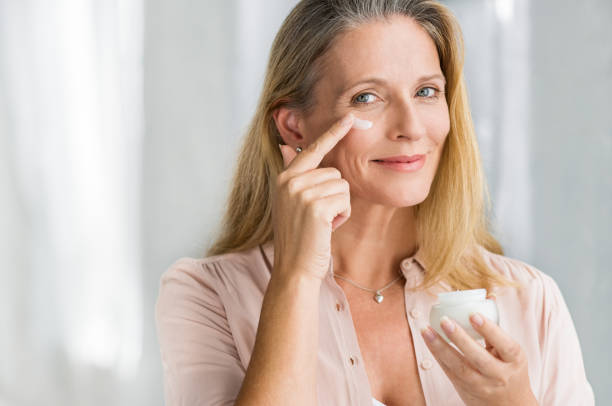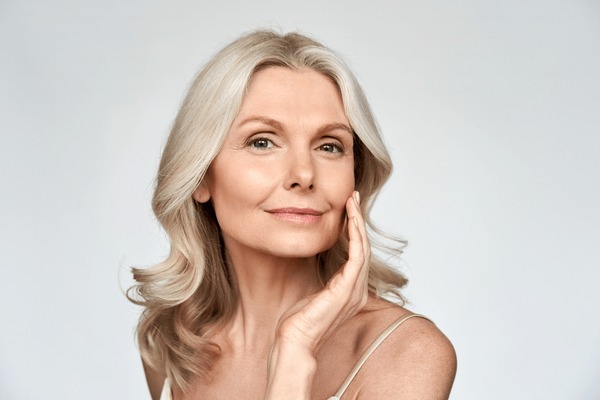As women age, their bodies go through a variety of changes that affect their physical and emotional health, including their intimate well-being. These changes are primarily influenced by hormonal shifts, particularly during menopause, and the natural process of aging. In this article, we’ll explore how aging affects intimate health, focusing on anatomical changes, changes in sensation, and the emotional aspects of intimacy.
1. The Impact of Hormonal Changes on Intimate Health
One of the most significant factors influencing women’s intimate health as they age is the hormonal shifts that occur, especially during menopause. Menopause typically occurs between the ages of 45 and 55, marking the end of a woman’s menstrual cycle and fertility. This transition comes with a variety of symptoms due to the drop in estrogen and progesterone levels. These hormonal changes have a direct impact on intimate health, affecting everything from vaginal health to emotional well-being.

The Role of Estrogen
Estrogen is a hormone that helps maintain vaginal health by keeping tissues hydrated and elastic. As estrogen levels decline, many women experience vaginal dryness, which can make intimate activities uncomfortable. This decrease in estrogen also affects the elasticity and thickness of the vaginal walls, leading to a condition known as vaginal atrophy. Vaginal atrophy can cause discomfort, pain during intercourse (dyspareunia), and even an increased risk of urinary tract infections (UTIs).
Vaginal Health and Changes in Sensation
The reduction in estrogen can also lead to reduced blood flow to the genital area, which affects sexual sensitivity and response. Women may experience a decrease in the intensity of sexual pleasure, and vaginal lubrication may be insufficient during intimacy. These changes in sensation are natural and vary from woman to woman, but they are important to understand in order to manage them effectively.
2. Urinary Health During Aging
Hormonal changes also influence urinary health. Estrogen helps maintain the tone and elasticity of the pelvic muscles, which support the bladder and urethra. As estrogen levels decrease, the pelvic floor muscles may weaken, leading to urinary symptoms such as increased frequency, urgency, or incontinence.
One effective way to address these issues is through pelvic floor exercises, commonly known as Kegels. These exercises help strengthen the pelvic muscles, improve bladder control, and enhance sexual function. By regularly practicing Kegels, many women find relief from urinary incontinence and enjoy improved intimate health.
3. The Emotional Impact of Aging on Intimacy
Aging does not only affect women physically; it can also have a profound impact on their emotional and psychological well-being. Many women experience mood swings, anxiety, or depression during menopause, often due to the hormonal changes that occur. These emotional shifts can affect libido, intimacy, and the way women perceive their bodies.
Body Image and Confidence
As women age, they may notice changes in their appearance, including weight gain, skin changes, and muscle loss. These physical changes can lead to negative body image and lower self-esteem, which can make intimacy feel less appealing. It’s important for women to practice self-compassion and acknowledge that these changes are natural. Embracing these changes and seeking support can improve emotional well-being and help maintain healthy, fulfilling relationships.

The Importance of Communication in Relationships
Open communication with a partner is vital when dealing with the emotional changes that accompany aging. Discussing concerns and exploring new ways to connect emotionally and physically can help foster a sense of intimacy. A supportive partner who understands and is patient with the changes can enhance the quality of the relationship.
4. Tips for Maintaining Intimate Health During Aging
While aging naturally brings about changes, there are several ways women can continue to enjoy healthy and satisfying intimate lives. Below are some tips for managing these changes and improving intimate health.
1. Stay Hydrated and Use Moisturizers
Drinking plenty of water is crucial for overall health, including vaginal health. Staying hydrated helps maintain the moisture in the vaginal tissues, which can alleviate dryness. Additionally, using vaginal moisturizers can help restore moisture and comfort. Water-based lubricants are also an effective way to reduce discomfort during intercourse.
2. Regular Exercise and Pelvic Floor Strengthening
Exercise is beneficial for overall health, but certain types of physical activity can specifically improve intimate health. Regular cardiovascular exercise, such as walking, swimming, or cycling, can increase blood circulation to the pelvic region, improving sexual health and function. Additionally, pelvic floor exercises, like Kegels, can help tone the muscles that support the bladder and vagina, leading to better bladder control and enhanced sexual satisfaction.

3. Explore Hormone Replacement Therapy (HRT)
Hormone Replacement Therapy (HRT) is a common treatment for alleviating symptoms associated with menopause, such as vaginal dryness and hot flashes. HRT involves supplementing the body with estrogen and sometimes progesterone, which helps to restore hormone levels. While HRT can be highly effective for many women, it is important to discuss potential risks and benefits with a healthcare provider to determine if it is the right choice.
4. Embrace Open Communication About Intimacy
As intimacy changes with age, it is important for couples to maintain open and honest communication. Discussing how intimacy may be different or exploring new ways to connect can help maintain sexual satisfaction and emotional closeness. It’s also important to recognize that intimacy can take many forms, and physical touch, affection, and emotional closeness are just as important as sexual activity.
5. Seek Professional Guidance
If intimate health issues persist or worsen, it is essential to seek advice from a healthcare provider. They can recommend a variety of treatments to address issues like vaginal dryness, urinary incontinence, and pain during intercourse. Healthcare providers may also refer women to pelvic floor physical therapists or counselors who specialize in sexual health.
5. The Importance of Seeking Support
Navigating the changes in intimate health during aging can be challenging, but women don’t have to do it alone. Seeking support, whether from a healthcare provider, therapist, or support group, can provide valuable information, reassurance, and solutions to help manage these changes.
Support groups for women going through menopause or dealing with similar health issues can also provide a sense of community and solidarity. Talking with others who are experiencing similar challenges can reduce feelings of isolation and help women feel more empowered to take control of their health.

6. Conclusion
Aging is a natural and inevitable part of life, and it brings with it various changes in women’s intimate health. While these changes can sometimes be uncomfortable or emotionally challenging, understanding them and taking proactive steps can help women continue to enjoy satisfying and fulfilling relationships. By maintaining a healthy lifestyle, practicing self-care, and seeking support when necessary, women can embrace aging with confidence and continue to experience positive intimate health.
References
- Mayo Clinic. “Menopause Overview.” Mayo Clinic
- National Institute on Aging. “Vaginal Health.” NIA
- American Urological Association. “Managing Urinary Symptoms in Women.” AUA
- The North American Menopause Society. “Managing Menopause: Treatment Options.” NAMS

